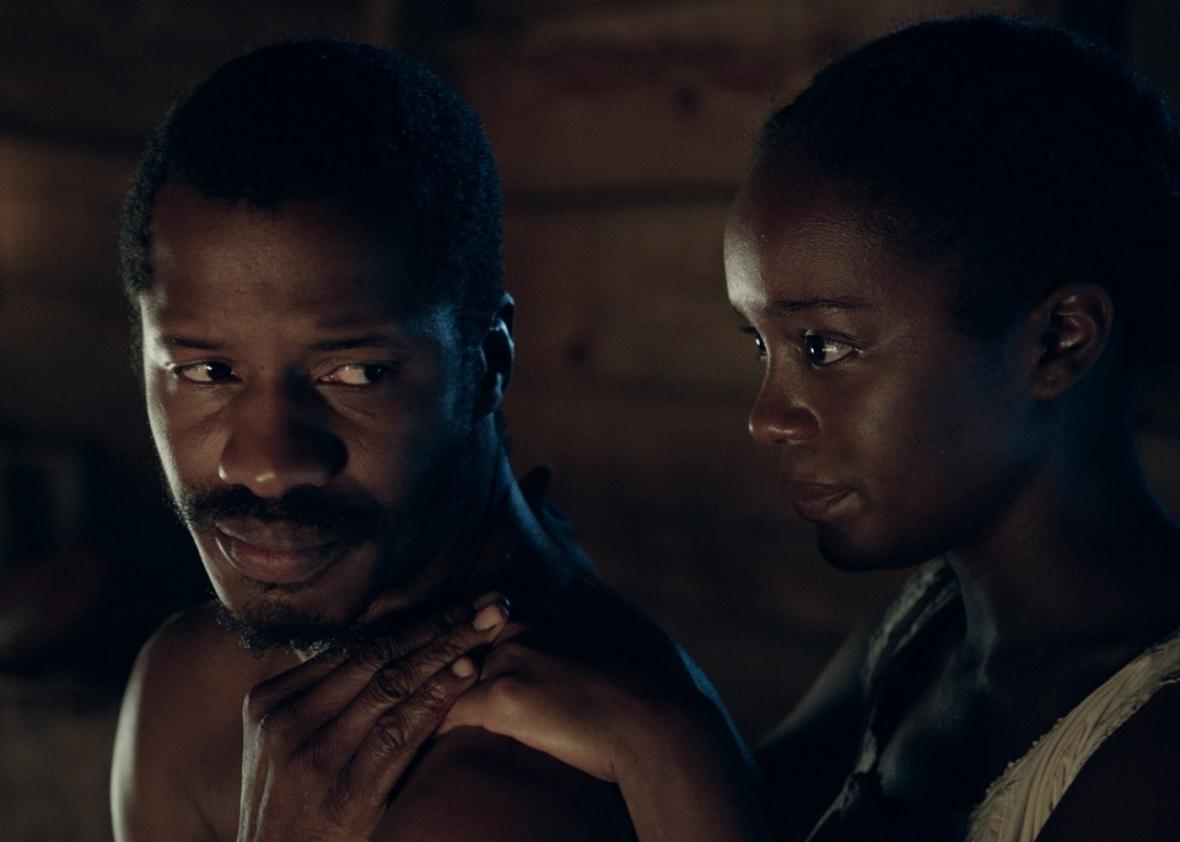In 17 years of movie-going experiences and two years of movie-reviewing, I cannot recall a film that I have not been able to form a solid opinion about. As I left the screening of “The Birth of A Nation,” produced, written and directed by Nate Parker, I was speechless. When asked by others what I thought of it, I found myself attempting to describe the film in short, generally negative phrases: “He tried too hard” or “It reminds me of ‘Django Unchained,’ and this story isn’t the place for a ‘Django’- type movie.” Initially, I did not like the movie. I quickly realized, however, that it was not distaste or dissatisfaction that made me feel uneasy. It was the weight of the film and, quite frankly, the anger in it.
“The Birth of A Nation” is heavy, moving and forceful. It is not graceful, nor is it forgiving. It is one of the most painful films that focuses on slavery that I have seen. Parker does not shield you from any part of the story he attempts to tell. Regardless of whether I like the film, I wholeheartedly encourage every single individual who is physically able to view this film to do so.
It breaks my heart that teens of color are so eager to see movies like “Sausage Party” but refuse to see TBOAN because it’s “boring” or “too sad.” It’s real. And providing a real story that is painful and does not necessarily have a happy ending might make some people uncomfortable, I understand. It doesn’t matter. Life is not comfortable. Encourage your parents, aunts, uncles, cousins, neighbor, mailman and every teacher in your school to see this film and bring their families.
TBOAN tells the story of Nat Turner, a young enslaved boy who is taught to read the Bible and eventually tours around local plantations to preach to other slaves. After seeing the injustice being conducted on his people, he begins to plot a rebellion.
Parker is an interesting director in that I can’t quite place his creative notions.* While he doesn’t attempt to hide the brutality and ugliness of slavery, he romanticizes the image of the slave family, which is peculiar to me because the separation of families is one of the most commonly known aspects of slavery. He also makes use of interesting symbols that I am not sure I have fully grasped yet, including blood gushing from an ear of corn or a butterfly on a dead black boy hanging from a tree.
What strikes me most about TBOAN is that it holds so much relevance in today’s society. When Nat’s wife Cherry describes the retaliation following the slave rebellion, she tells her husband: “They killed all the men. They’re killing people everywhere just for being black.” When that line was spoken in the media screening, the entire theatre erupted into a chorus of “wows” and “mmms” and other audible noises that sort of translated to “Well, isn’t that a coincidence?”
A line of dialogue uttered by a slave in the aftermath of an 1831 slave rebellion, can be spoken 185 years later and still mean the same thing.
A large part of this film is meant to encourage people to take action — not necessarily start a rebellion, but start a conversation, vote, or find some way to ensure your voice is heard at the local and national level — not out of anger, but out of the desire for peace. Essentially, it is saying that we have been fighting and marching and shouting for centuries, but now is the time to sit and talk with each other, not at each other, so we may develop a peaceful solution.
Regardless of your notion that it’s “just another slave movie” or that it makes you uncomfortable, swallow your pride, grab all your friends and family, watch this film, and reflect. Then, once you have done that, take action to make our world better.
*I was not aware of the rape allegations against Nate Parker prior to viewing the film (In 1999, at age 19, Parker and Jean Celestin, a TBOAN co-writer/co-producer and Parker’s former Pennsylvania State University classmate, were charged with rape. Parker was later acquitted of the charges while Celestin was convicted of sexual assault but the charge was later overturned). If you are aware and decide to use his past as a reason to boycott the film, I would like to remind you that this is a story. This is a piece of art at its purest form. His accuser’s sister has criticized Parker, saying he’s “[insulting] her sister’s memory” by placing a rape scene in the film (although rape did happen in the institution of slavery). The people focusing on Parker’s past might be missing what the movie is about, and quite frankly, it’s devastating to me, as an artist, to see another artist’s mistake cast a shadow of damnation onto his work, when his work is so, so important.
Thalia, 17, a senior at DeKalb School of the Arts, is an arts advocate who enjoys creating and watching films as much as she enjoys writing about them.
 Talking About Race – Dec. 12, 2-4 p.m. – Save the Date
Talking About Race – Dec. 12, 2-4 p.m. – Save the Date
VOX is keeping the conversation about race going with this semester’s VOX Investigates — all about race and teens in ATL. We’d love to include your voice, too! Just email your original poetry, letters, writing or art to media@voxatl.org. Include your name, age and contact info.




